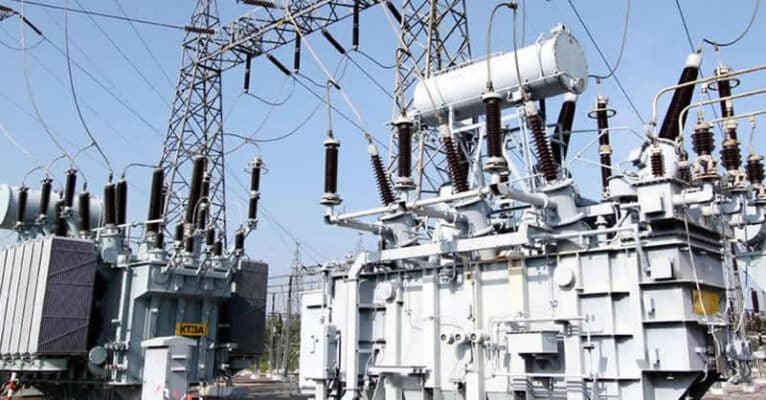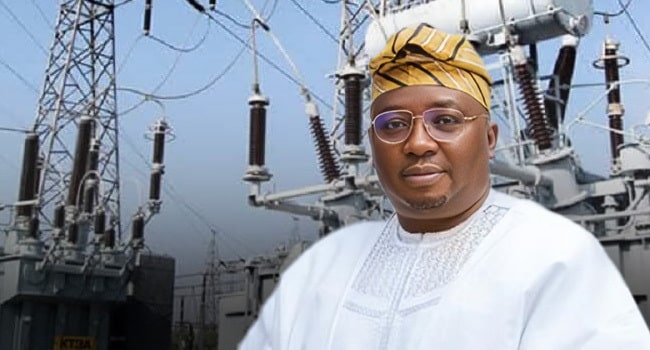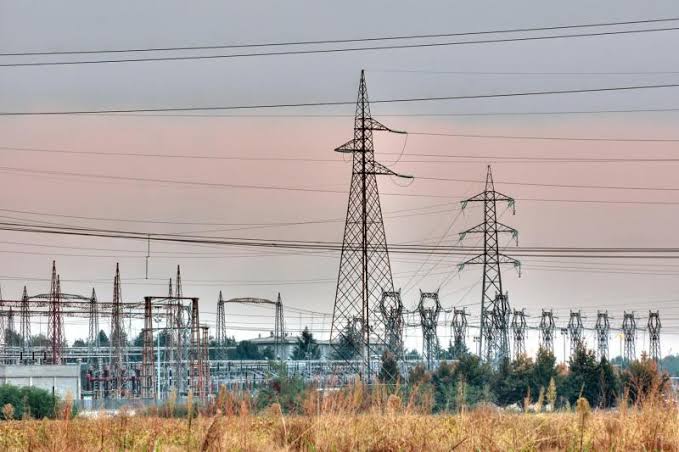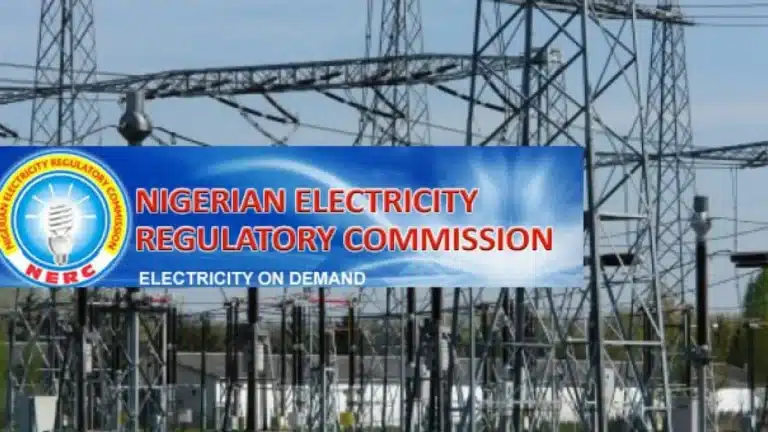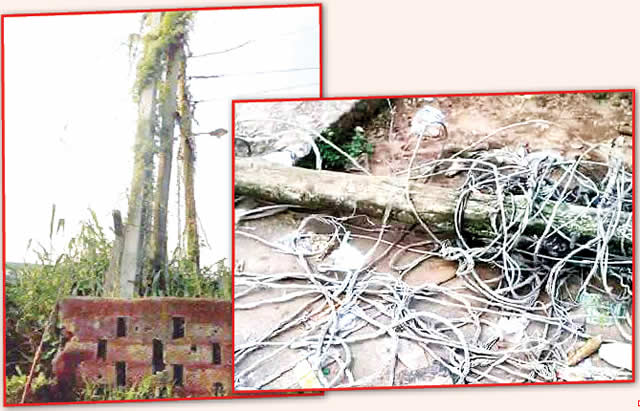News
The Politics Of Electricity Tariff

By Simon Kolawole
Whether we like it or not, the issue of electricity tariff is a touchy one. In the power sector reform, we are always talking about power generation, transmission and distribution. We are always talking about how many megawatts we are producing or want to produce. We have also regularly discussed the cost of gas and the infrastructure to get it to the power plants. We talk about the ability of the national grid to transport the power generated to the distribution points. We, as end users, always complain about estimated billing. But a critical element — the tariff — is the most ignored item on the agenda. Yet, the sector cannot be economically viable as long as the tariffs we pay do not cover the cost of generating, transmitting and distributing power. That’s the tough truth.
In my previous article, I did argue that while the decision of the National Economic Council (NEC) to audit the distribution companies (DisCos) is welcome, there are bigger problems in the Nigerian power supply industry. We need to conduct a wholesale technical and forensic audit of the entire sector so that we can pinpoint where we are, what is wrong and how we can get out of the darkness. Definitely, the problems and challenges are not limited to the DisCos, despite our misgivings with them. In the article, I also complained about the poor state of the Transmission Company of Nigeria (TCN) — a clear clog in the wheel — as well as the extravagant agreements we signed with some generation companies (GenCos) and gas companies. There is trouble in every corner.
I pointed out that while we were signing away our national treasury to some GenCos and gas companies, we knew very well that TCN did not have the capacity to evacuate the power to be generated and the DisCos could not collect revenue transparently. It’s like asking a bakery to produce 10,000 loaves of bread daily with a deal to pay for all — whether or not you are able to transport them. But your truck can only transport 4,000 loaves and your vans can only distribute that much. Now, shouldn’t you get a truck that can take 10,000 loaves from the bakery as well as the vans to distribute them? Today, GenCos can produce more than 10,000mw but TCN can only take 5,000mw or less. And we have to keep paying for power generated even when we can’t use it!
The Azura power that has become an albatross on our neck is a depressing case in point. We contracted to pay them $30 million every month when we knew TCN did not have the capacity to wheel the power produced. We undertook to pay the 450mw-plant $1.2 billion if we pull out of the agreement. For the life of me, $1.2 billion will build a new, 1,000mw plant! Who did this to Nigeria? Some people will have to answer for this someday. OPL 245 was granted to Malabu Oil and Gas Ltd in 1998 but 22 years after, people are still in court explaining their roles. Shell and ENI are undergoing criminal trial in Italy over the oil block. Someday, investigations will be launched into the making of this Azura shackle and the key actors will, hopefully, be made to pay the price.
I am told that Azura needed the guarantee to build the plant since we were the ones that desperately needed power, hence the millstone we have hung on our necks. This is a very condescending argument — as if Azura was doing Nigeria a favour. When did capitalists start doing you a favour by investing in your country? I got this text from a friend last week: “I attended this training some years ago and the facilitator, a European, told us that Azura is the most expensive generation project he had ever seen. He shared numerous models showing how the costs are determined. He said even in the Middle East where they have money, they didn’t spend close to what we are doing with Azura.” And we undertook to pay $1.2 billion if we exit. Nigeria!!!
In addition, we need to discuss the naughty issue of electricity tariff as I conclude my take on the politics of the power sector. I must say that I agree with thewith the suspension of the increase in tariffs which was to take off on July 1. I support it not because I think an increase was not necessary. There is no doubt that the federal government cannot continue to spend the kind of money it is spending to sustain the sector — over N1 trillion as “payment guarantee” in the last five years for power that most Nigerians are basically not enjoying. If we had pumped the loan into education or health, we would not have seen a significant improvement. However, the new tariff would have come at a bad time — when we are still battling the economic impact of the coronavirus disease.
Lest we forget, Nigerians were promised two months of free electricity when the pandemic started. That was in April. It seems we have all forgotten now. I knew it was unrealistic. For one, there is nothing like free electricity; somebody will pay for it to be free for others. Where would the money come from? The federal government itself needs palliatives, with oil prices tumbling and FIRS desperately and comically begging companies to pay tax in advance. Nevertheless, if we are unable to give free electricity to Nigerians, we should at least not compound matters by making them pay higher tariffs during an economically devastating pandemic. I, therefore, believe that it makes sense for the proposed increase to be deferred for a while so that poor Nigerians can breathe a bit.
Yet, the truth is that we have been playing politics with tariff for too long. When the power sector reform was set in motion by President Olusegun Obasanjo in 2005, one key element was the multi-year tariff order (MYTO) — designed to gradually price power appropriately while recognising that all fingers are not equal. Residential was separated from commercial, and even residential was further stratified. Those living in areas considered to be low income would pay the lowest tariff while those in affluent neighbourhoods would pay the highest in the residential band. What has happened over the years, unfortunately, is that any talk about tariff always generates negative emotions among the masses, making it politically volatile to review the MYTO.
Let us be clear, though: it is not as if Nigerians do not have a point when they resist tariff hike. A common retort is: why should I pay for darkness? This is complicated by the failure to provide enough prepaid meters so that consumers can pay for only what they use. Post-paid metering, which allows for estimated billing, aka “crazy bill”, has created permanent tension and hostility between DisCos and customers. The trust is not there, and the experience of unstable power and poor customer relations can only worsen matters. So why ask Nigerians to pay more for power when they are perpetually in darkness? Why should they pay more when they are already being charged for power that was neither supplied nor consumed? Nobody can wish this query away.
But this is an interesting debate and it depends largely on how we shape it. One side will ask: should customers continue to pay tariffs that cannot cover costs (much less provide funds for the necessary investment) and expect power to improve? The other side will respond: why not improve power supply first so that Nigerians will see reason to pay higher bills? The answer is somewhere in-between. The goal of the power roadmap, combined with MYTO, is to develop the infrastructure and environment that will improve power supply, and as supply improves, Nigerians will be asked to pay more. But when you have a falling exchange rate and unending technical and commercial losses (particularly power theft by fellow Nigerians), the entire industry will always be upside down.
When President Muhammadu Buhari came into office in 2015, the power supply industry was heading for a meltdown. Although we had improved significantly on generation with the various projects initiated by Obasanjo and completed (and privatised) by President Goodluck Jonathan, our transmission
Advertise or Publish a Story on EkoHot Blog:
Kindly contact us at [email protected]. Breaking stories should be sent to the above email and substantiated with pictorial evidence.
Citizen journalists will receive a token as data incentive.
Call or Whatsapp: 0803 561 7233, 0703 414 5611




